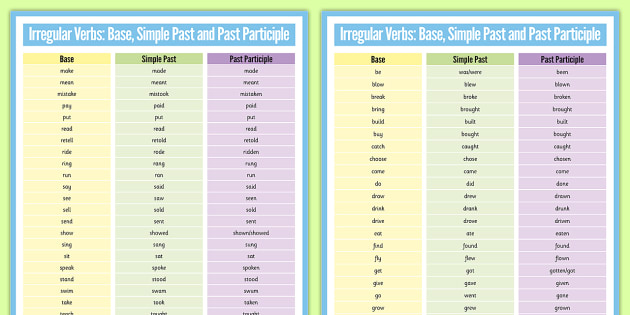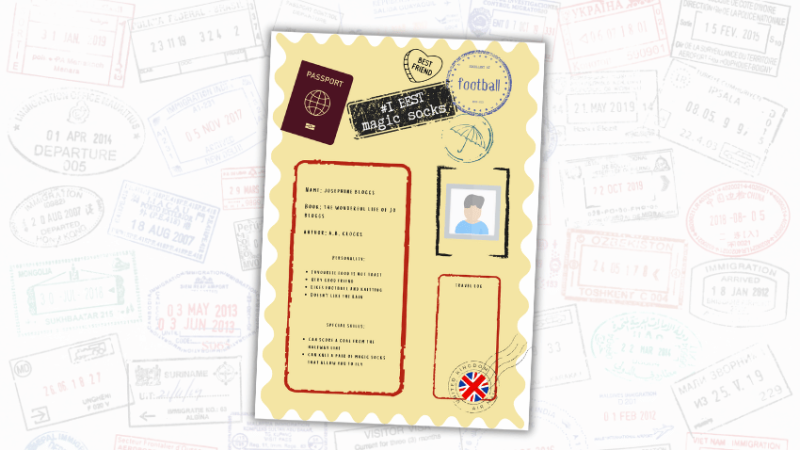Irregular verbs – 7 of the best resources for KS1 And KS2 grammar
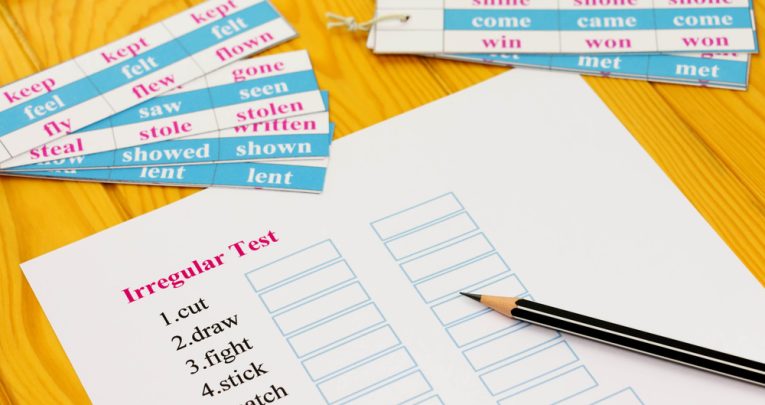
If your children have, had or have had difficulty with irregular verbs, here are some fun resources to try to make those pesky non-conformist words stick…

- by Lloyd Burgess
- Former editor of Teachwire

It’s often pointed out that the English language, comprised as it is from a number of different sources, is a confusing beast.
It’s all fine and dandy when it’s following the rules, but then a word like ‘forbid’ comes along and all of a sudden you’re dealing with ‘forbidden’, ‘forbade’ and ‘forbad’.
That’s before you even get to those that seemingly no one ever bothered to invent a word for all of its forms: ‘I can’, ‘I could’ and er…’I have been able’.
I guess ‘I have coulded’ sounded too weird.
But at least poking fun at these irregularities has produced some great results, from the old Eddie Izzard bit about the verb ‘to hanglide’
To this line in the mostly incredible (Seriously. Don’t judge it against the other awful ‘Not Another…’ movies that came later) Not Another Teen Movie, when Jaime Pressley’s character delivers an excellent comeback to someone challenging her to ‘bring it’.

Teaching these exceptions then, is important, but tricky. So we’ve picked out some fun and helpful resources for you.
1 | Past posters
Naturally, the quickest and easiest thing to do is print a nice colourful poster listing common irregular verbs to display in your classroom. Here’s one.
Maybe don’t put it up until after you’ve done your lessons covering them, though, especially if you plan on doing a quick test. You might find a correlation between highest score and proximity to the poster.
2 | Grouping together
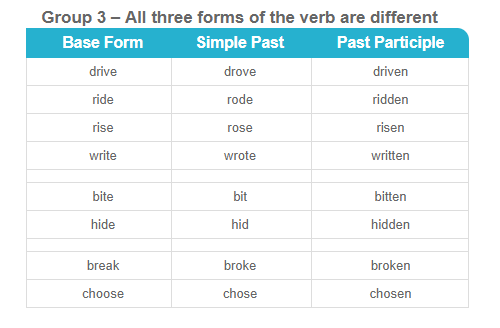
Another simple and handy reference tool is this list of irregular verbs which are handily sorted into three groups.
The first includes verbs where all three forms – present, simple past and past participle – are the same:
- Put, put, put
The second is those where the simple past and past participle are the same, but the present differs:
- Feel, felt, felt
And the third is where all three forms differ:
- Swim, swam, swum
You can find the full list here.
3 | All aboard
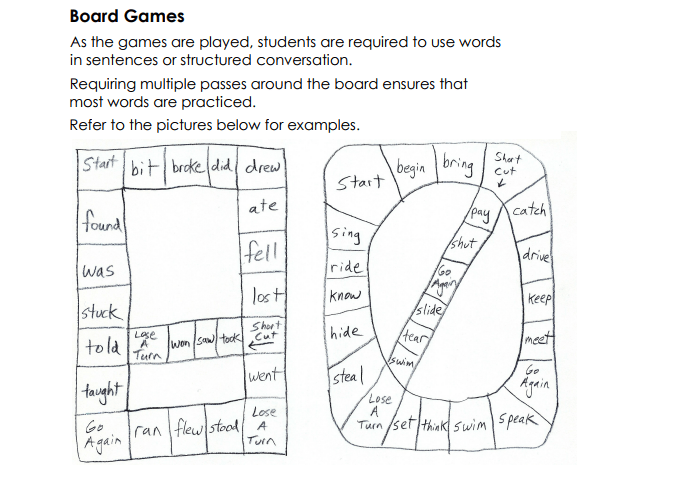
On to some activities now. You can find a whole bunch here for various levels, including this board game idea that gets children to use irregular verbs in sentences to win.
This particular resource can be found here.
4 | My funny weekend
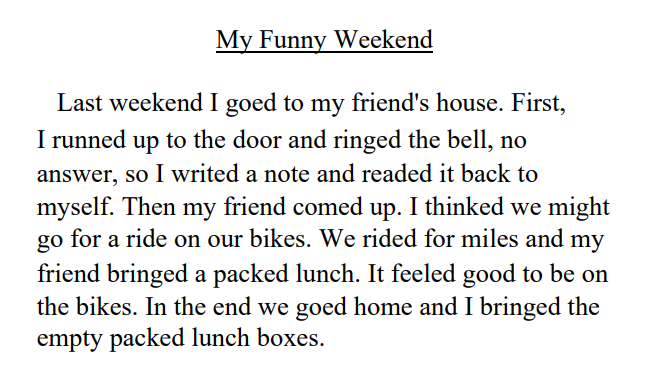
This short and sweet idea tells a brief story of the narrator’s weekend, however every verb has been written as the infinitive plus the suffix ‘-ed’. Children need to read through the story and correct each one.
Print this activity sheet out here.
5 | Verb Jeopardy
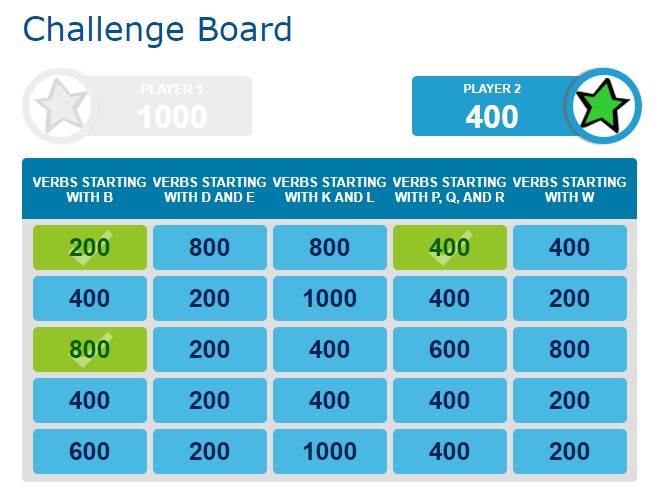
If you’re unfamiliar with the game show Jeopardy!, players are given a board with point totals on in various subjects. The more points, the harder the question you need to answer to get those points.
This two-player interactive game works exactly on this basis, asking children to fill in the blanks with the correct irregular verbs. For example you’ll get a question like:
Fill in the past tense of ‘read’: Robert ___ three new books this past month.
Simple, challenging and fun.
6 | Crossverbs
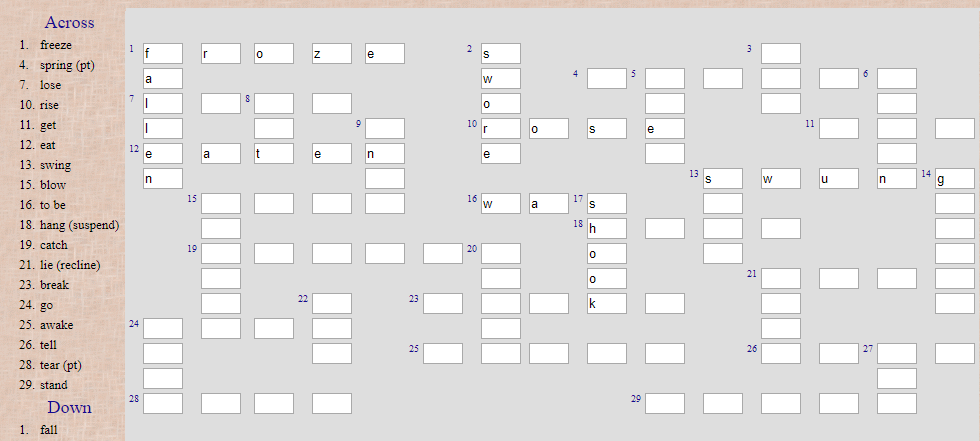
More games and puzzles now. This irregular verb crossword can be filled out online, so it makes a nice quick challenge to see how your students are getting on.
7 | I quiz, I quizzed, I have quizzed
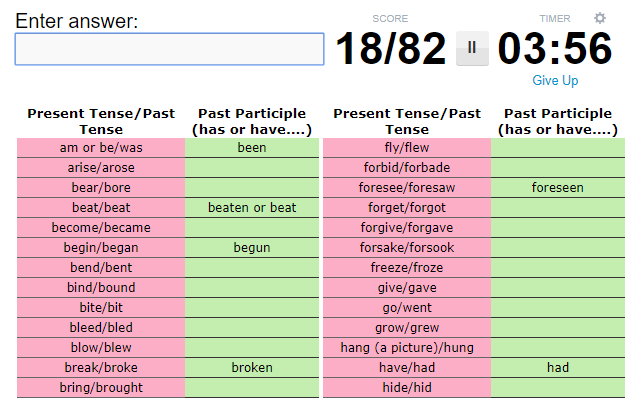
Time for a bit of fun now. Five minutes’ worth to be precise. This quick quiz from Sporcle asks you to guess 82 of the most common irregular verbs when given the present and past participle forms.

